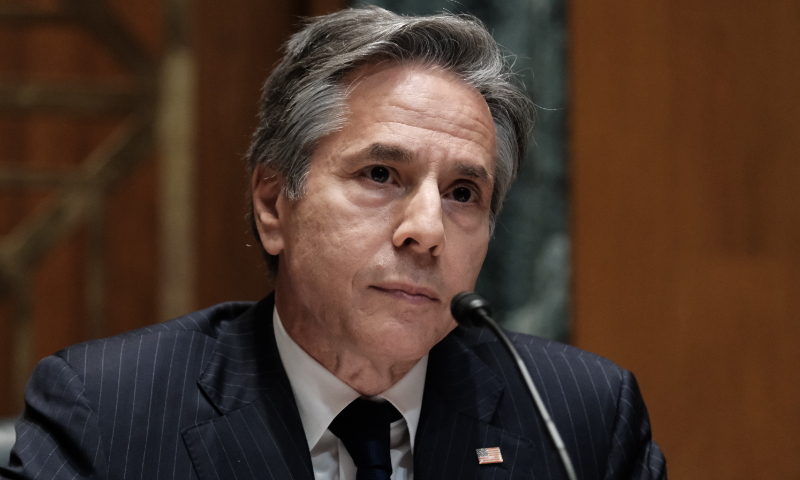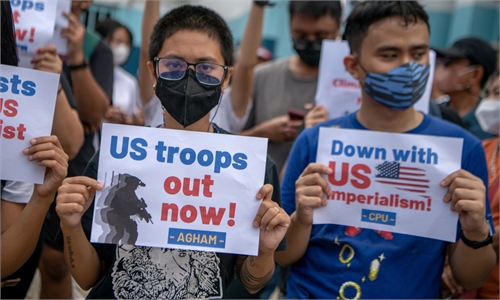Blinken's reported Vietnam visit 'will not affect Hanoi's overall strategy' due to inherent and structural concerns

US Secretary of State Antony Blinken Photo: VCG
As US Secretary of State Antony Blinken is reportedly set to visit Vietnam next week, experts said on Sunday that his visit may yield results in some areas, such as maritime security, or some improvement in economic cooperation, but it will not affect Vietnam's overall strategy because there are still some inherent and structural contradictions between Vietnam and the US.
Blinken's visit, which has not yet been officially announced, comes after US President Joe Biden had a phone call with General Secretary of the Communist Party of Vietnam Central Committee Nguyen Phu Trong on March 29.
US Senator Jeff Merkley announced the visit at a news conference in Hanoi on Saturday as part of Washington's efforts to push diplomatic relations with Hanoi to a higher level in 2023, as this year marks the 10th anniversary of the US' comprehensive partnership with Vietnam.
Since the Biden administration launched its so-called Indo-Pacific Strategy, Vietnam and other Southeast Asian countries have become objects of its cajoling, Xu Liping, director of the Center for Southeast Asian Studies at the Chinese Academy of Social Sciences, told the Global Times on Sunday. The US has been trying to upgrade the Vietnam-US relationship to a comprehensive strategic partnership, but Vietnam seems to have concerns about that, Xu said. After all, there are still some inherent and structural contradictions between Vietnam and the US, such as ideological issues and historical issues.
Predictably, Blinken's visit to Vietnam may still yield results in some areas, such as maritime security, or some improvement in economic cooperation, but it will not affect Vietnam's overall strategy, experts said.
Blinken is expected to visit Vietnam before he heads to a meeting of foreign ministers of the Group of Seven countries in Japan on April 16, according to Reuters.
Observers believe that as the G7 meeting will be held in Japan, and the Indo-Pacific Strategy is the first concept put forward by Japan, it is foreseeable that "Indo-Pacific" will become a key term at the upcoming G7 summit, and the most important part of this is to woo Southeast Asian countries.
To hype the issue of freedom and openness in the South China Sea at the G7 summit, the US must lay the groundwork, and this visit to Vietnam is one of the steps, Li Kaisheng, a research fellow and deputy director at the Institute of International Relations of the Shanghai Academy of Social Sciences, told the Global Times on Sunday.
Vietnam's concerns about improving US-Vietnam relations are mainly in two aspects, Li said. The first is that Vietnam does not want to take sides in the current geopolitical games. The second stems from domestic concerns. The US political system is different from Vietnam's, and Vietnam has always been wary of the US dictating its domestic system, so Vietnam hopes to put the relationship with the US in economic, scientific, and technological aspects.
Though on the South China Sea issue, Vietnam is not averse to maintaining cooperation with the US, it will not be kidnapped by the US nor fall into the trap of confrontation, experts noted.

